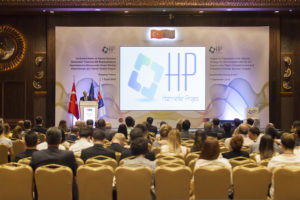
Technical Assistance for Implementation of Civil Society Dialogue and Civil Society Support Programmes (TR2015/DG/01/A5-01/001)
The overall aim of the project is to increase bilateral exchanges and cooperation between CSOs in Turkey and the EU at local, regional and national levels, to promote awareness raising initiatives on importance and benefits of membership of Turkey to the EU within Turkey and EU and on

Training and Establishing Meal Department (Monitoring, Evaluation, Accountability, And Learning)
The implementation of effective monitoring, evaluation, accountability, and learning (MEAL) are vital to the success of all programs. In this regard, the purpose of the project was to provide accountability to their stakeholders through information sharing and developing complaints or feedback mechanism which can help to guide program

Technical Assistance for Supporting the Solution of Economic and Social Integration Problems in Diyarbakır, Şanlıurfa, Gaziantep, and Erzurum, as Major In-Migrant Destinations
Rapid migration in major urban areas, namely Diyarbakır, Şanlıurfa, Gaziantep and Erzurum (DGES), have adverse impacts in Turkey. To reduce these unfavourable effects, EKOSEP aimed to support social integration and environment-related infrastructure problems due to migration in the selected provinces in a multi-actor manner. Furthermore, it aimed to

Ministry of Development Training Programme
Organisations need technical assistance with funds and areas like good management practices; monitoring reports; training programmes on monitoring and evaluation; objectives and indicators, etc. Therefore, the project aimed to provide technical assistance to the Ministry in the field of fund management to the Standing Committee for Economic and

Monitoring Human Rights Situation and Advocating for Compliance with International Human Rights Framework
The main objective of this service contract is to strengthen Turkish civil society organisations’ role in the promotion and protection of human rights through expanded civil society monitoring and advocacy at various levels. The action will provide support to civil society organisations in order to document human rights

Support to Preparation of the National Strategy for Harmonization with the EU Acquis in the “Right of Establishment and Freedom to Provide Services” Chapter – Relaunch
The negotiations have been continuing between Turkey and the European Union on the subject of “Right of Establishment (ROE) and Freedom to Provide Services (FPS).” Thus, the project aimed to generate a comprehensive action plan that identifies all necessary legislative and administrative measures in order to comply with

